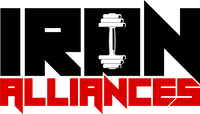
Fat is essential — not optional. If you’ve been aggressively cutting calories or following low-fat diets, you could be under-fueling your hormones, recovery, and mental function. Here’s how to tell if it’s holding you back.
Not sure how much fat you should be eating? Match with a coach at Iron Alliances and get personalized macro targets that support performance and health.
Fat is a precursor for hormone production — including testosterone and estrogen. If your mood, libido, or drive has tanked, and training recovery feels slower, you might be too low on fat.
Training hard but feeling worse? Iron Alliances coaches help balance recovery, stress, and nutrition with your performance goals — start here.
Fat helps regulate your body temperature. If you're always freezing, especially in mild climates or during cutting phases, you may be missing dietary fat and energy balance.
Omega-3s and healthy fats reduce inflammation and cushion your joints. Without them, joint stiffness and soreness can spike even without training changes.
Fat-soluble vitamins A, D, E, and K rely on dietary fat for absorption. Without them, your immune system and cell repair mechanisms lag — making recovery harder and slower.
Fat supports brain structure, cognitive performance, and memory. DHA, an omega-3 fat, is critical for clarity and learning. Chronic low-fat diets often lead to mental fatigue and poor focus.
Fat helps stabilize blood sugar and promote fullness. If your meals are fat-deprived, you may experience sugar cravings or energy crashes that sabotage your diet consistency.
Essential fatty acids maintain skin hydration, softness, and integrity. Dull or flaky skin can be an early warning that your fat intake needs attention — even if your hydration is good.
We cover related hormonal effects in our guide on how to know if you’re eating too many carbs.
Most lifters should aim for 0.3–0.5g per pound of bodyweight. Never drop below 20% of total calories from fat unless guided by a professional.
You can — but it's risky. Fat is essential for hormone balance, and hormones control growth, repair, and strength. Go too low, and your gains suffer.
Focus on avocado, olive oil, wild salmon, chia seeds, egg yolks, walnuts, and grass-fed beef. Avoid trans fats and keep processed seed oils minimal.
Want more lifter-focused nutrition strategies? Browse the full Iron Alliances nutrition hub.
Our coaches help you find the right fat intake for your body, goals, and training — with custom plans that evolve with your progress.